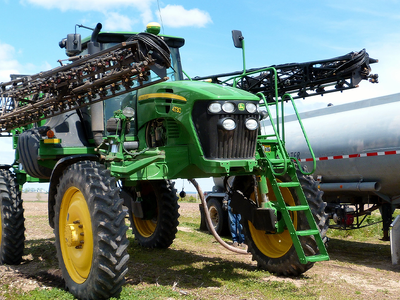Robot wolves
A different kind of robot to assist crop size.Imagine a world where robot wolves roam the hillsides, guarding against bear attacks and protecting agricultural lands. In Japan, this sci-fi scenario is now a reality! Robot wolves are the latest sensation in wildlife management, and they’re changing the game when it comes to deterring wild bears and ensuring the safety of rural communities.
But how do these mechanical wolves work their magic? Why are they being used in Japan? And what makes them so effective? Let’s dive into the fascinating realm of robot wolves and discover how they are becoming a creative and non-lethal solution to mitigate human-wildlife conflicts in the Land of the Rising Sun.
Japan is no stranger to the presence of bears in its rural areas. While these creatures are an essential part of the ecosystem, they can pose significant risks to agriculture and human settlements. To address this challenge, Japanese engineers put their heads together and came up with an ingenious solution – robot wolves!
These robot wolves are designed to mimic the appearance of real wolves, complete with fur, snarling teeth, and menacing red eyes. This lifelike facade gives them an intimidating aura that even the boldest of bears find hard to ignore.
One of the key features of these mechanized wolves is their ability to emit loud, howling noises. These eerie sounds are reminiscent of a wolf’s cry, sending shivers down the spines of nearby bears and wildlife.
Robot wolves aren’t just static statues; they move! With sensors detecting any nearby movement, they can simulate the unpredictable movements of a real wolf. This unpredictability adds an extra layer of fear for any curious bears in the vicinity.
Bears have a voracious appetite and can cause extensive damage to crops. By deploying robot wolves in agricultural areas, Japan aims to safeguard its farming communities from potential bear encounters, reducing the economic impact of bear-related incidents.Wild Boars get scared from the loud sounds and lights of Monster Wolves. Screenshot from “‘Monster Wolf’ robot aims to spook Japan’s wildlife problem away”
Bears have a voracious appetite and can cause extensive damage to crops. By deploying robot wolves in agricultural areas, Japan aims to safeguard its farming communities from potential bear encounters, reducing the economic impact of bear-related incidents.
But bears aren’t a concern in Idaho. Roving elk and deer populations in wheat or barley fields are. Could a robot wolf be a solution?













